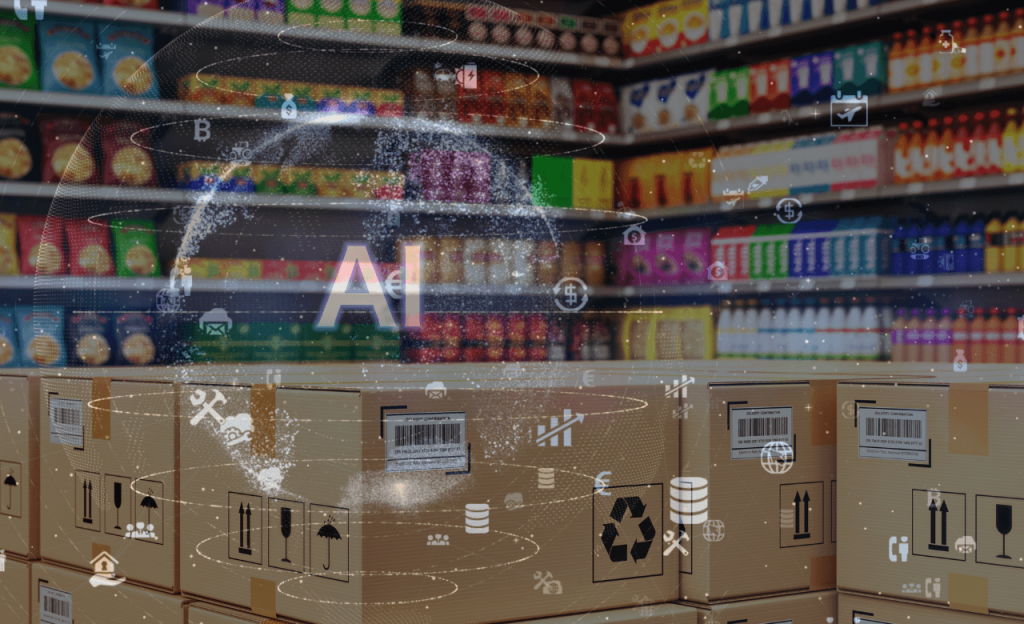The retail industry has always been a dynamic sector that thrives on its ability to adapt and innovate, with data serving as its cornerstone. From analyzing consumer behaviors to optimizing supply chains, data has long driven efficiency, growth, and success in the competitive landscape. Yet, the vast repositories of unstructured data often went untapped and underutilized – until now.
Here, the advent of Artificial Intelligence (AI) brings in a complete transformation. It enables a seamless synergy of technology and human touch to redefine how businesses interact with customers, manage operations, and leverage insights. With the global AI in retail market expected to reach $31.18 billion by 2028 as per Statista, it’s clear that AI adoption is accelerating at an unprecedented pace.
Let’s take a deep dive into some practical applications of AI in retail.
Practical Applications of AI in Retail
1. Personalized Customer Experiences
The consumers today are stepping beyond mere transactions, seeking personalized experiences tailored to their individual preferences. At this very crossroad connecting retailers and customers, AI provides deep insights into browsing history, purchase patterns, and demographics to support key applications, including:
- Product Recommendations: Analyzes purchase history and browsing behavior.
- Dynamic Pricing: Adjusts prices based on demand, inventory, and competition.
- Targeted Marketing: Delivers tailored promotions through customer segmentation.
2. Inventory and Supply Chain Optimization
Efficient inventory management and supply chain optimization is crucial for retail success. AI algorithms analyze sales data, market trends, tech innovations, and external factors such as weather conditions for accurate demand predictions. Examples include:
- Demand Forecasting: Anticipates demand fluctuations through predictive analysis.
- Automated Reordering: Minimizes stockouts and overstock scenarios.
- Supply Chain Visibility: Tracks shipments to ensure timely deliveries.
3. Smart Store Operations
Smart store operations represent a breakthrough in how retail businesses manage their day-to-day operations. By integrating AI, stores can transform traditional operations into intelligent systems, empowering consumer demands with agility and precision. Key applications include:
- Cashierless Checkout: Enables seamless checkout experiences, reducing wait times.
- Customer Flow Analysis: Monitors foot traffic to optimize layouts and staffing.
- Fraud Prevention: Detects suspicious activity and prevents fraudulent transactions.
4. Marketing and Sales Optimization
In the competitive retail landscape, marketing and sales success depend on precision and adaptability. Retailers who are quick to act on signals of change with refined or maybe redesigned marketing strategies and approaches are the ones who can thrive. Here, AI significantly contributes in ways like:
- Targeted Campaigns: Creates targeted marketing campaigns for better conversions.
- Customer Sentiment Analysis: Gauges sentiment and adjust marketing strategies.
- Content Personalization: Customizes content to boost engagement and sales.
5. Product Development
Retailers are harnessing the power of AI to stay ahead of the curve by predicting trends and designing products that resonate with evolving customer preferences and changing market conditions. This is achieved through tools like:
- Trend Analysis: Identifies latest trends to design in-demand products.
- Virtual Try-Ons: Enables AR-powered virtual ‘try-on’ for better experience.
- Enhanced Prototyping: Speeds up design with digital prototypes, cutting costs.
6. Intelligent Customer Support
Customer support innovations like AI-driven chatbots have become the powerhouse generating superior customer experiences in retail. Available 24/7, these intelligent systems provide quick and accurate responses through applications like:
- Virtual Assistants: Handles queries, freeing up human agents for critical activities.
- Sentiment Analysis: Analyzes feedback to address concerns proactively.
- Voice Recognition: Assists with voice-based search and customer inquiries.
The Impact of AI on Retail
AI brings a fresh wave of energy to the retail sector, delivering transformative benefits that enhance customer experiences and streamline operations. From product lifecycle and procurement to customer experience and decision-making, it is influencing every facet of the sector in leaps and bounds. Indeed, the years 2023 and 2024 have been a blessing for retail companies using AI and associated technologies like Machine Learning (ML). According to Statista, these retailers experienced double-digit sales growth and an 8% increase in annual profit, outperforming competitors who did not adopt these technologies.
- Increased Operational Efficiency: Automates various tasks like inventory tracking, customer support, and fraud detection, freeing up resources for strategic initiatives. This makes the routine tasks more effective and drives business growth.
- Enhanced Customer Experience: Personalizes interactions with seamless, engaging experiences that foster customer loyalty and satisfaction. In fact, 93% of retailers are already using AI for personalization, according to Salesforce .
- Informed Decision Making: Transforms retail data into meaningful, actionable insights, empowering decision-makers to make smarter business choices. This helps reimagine strategies and approaches to drive measurable outcomes at speed.
- Optimized In-Store Space Utilization: AI-powered algorithms help retailers optimize space and inventory management by analyzing consumer preferences, product location, weather conditions, and expiration dates. This data-driven approach helps place shelves and products strategically, maximizing store layout efficiency.
- Accelerated Revenue and ROI: Helps streamline operations across the retail value chain, reducing costs and friction across various touchpoints. Even, a recent Accenture study shows that 75% of retail executives see AI as essential for driving revenue growth.


Embracing AI in Retail: A Strategic Advantage
The practical applications and benefits of AI in the retail industry are undeniable. From AI-powered recommendation engines at Amazon and automated fraud detection software at eBay to Zara’s real-time demand forecasting and Starbucks’ personalized marketing, the retail landscape is expanding its horizon with new avenues of value-driven opportunities. As AI continues to drive innovation and transform retail practices, businesses that embrace these technologies will be better equipped to secure long-term success.
- For enterprise decision-makers, it is crucial for staying competitive.
- For startups, it can be used to innovate and scale rapidly.
- For industry-specific leads, it can help address unique challenges.
- For technical teams, it can help build scalable and efficient retail ecosystems.
The question is no longer whether to adopt AI but how quickly retailers can harness its potential for unthinkable outcomes. The result is indeed a more connected, efficient, and responsive retail ecosystem.
Partnering for Retail Success
At Delaplex, we are committed to providing the creativity and flexibility needed to drive transformation at pace. With a strong and agile execution framework, along with effective teamwork, we drive results that unlock the full potential of AI.
Whether onshore, nearshore, or offshore, we bring the expertise and resources needed to deliver impactful, customized solutions that address your specific needs. With our deep knowledge of AI and a focus on industry-specific applications, we design our approach to accelerate your path to value. Let’s embark on this transformative journey together.
Contact us to explore AI solutions tailored for you.








